Road to U 19 cricket world cup
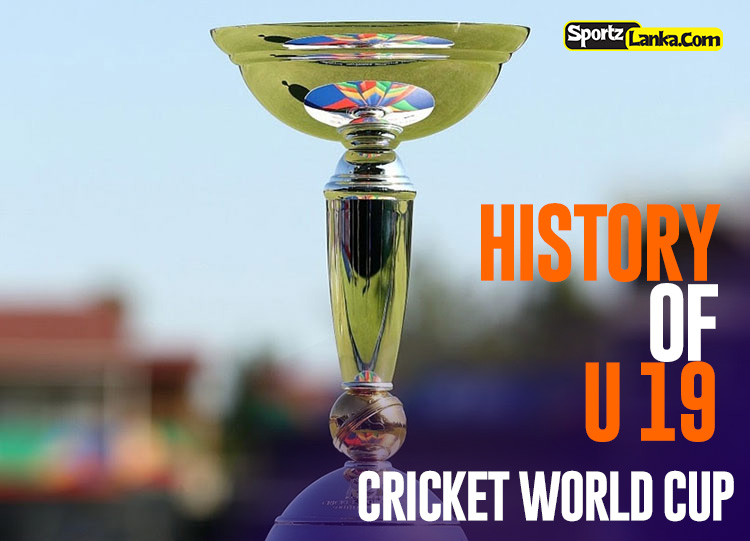
2024.01.13
Emerging players from 16 sides are preparing to fight for the coveted crown in South Africa in the upcoming 15th edition of the ICC U19 Men’s Cricket World Cup.
Since the competition’s inception in 1988, there have been seven distinct winners in its 14 iterations. India took the lead with five championships, followed by England (1), Australia (3), Bangladesh (2), Pakistan (2), South Africa, and the West Indies.
Additionally, the competition has undergone several changes throughout the years, giving many of the game’s biggest stars their first opportunity to compete.
1988 (Australia was the winner)
In honor of Australia’s bicentennial, the U19 Men’s Cricket World Cup—then known as the Youth World Cup—was held in its debut year.
Seven Test-playing countries competed in the competition, in addition to a composite squad made up of ICC Associate Members.
In the final, Australia, the hosts, defeated Pakistan by 5 wickets.
international players from the Class of 1988 tournrment: Nasser Hussain, Michael Atherton, Chris Cairns, Mushtaq Ahmed, Sanath Jayasuriya, Brian Lara.
1998 (England won).
Ten more years passed before the U19 World Cup was held again, and this time, South Africa was serving as the inaugural host of an ICC competition.
With 16 teams competing in the competition, the number of teams has doubled from the inaugural edition.
‘Universe Boss’ Chris Gayle made his impact in this tournament, finishing as the top run scorer.
Alongside Mluleki Nkala of Zimbabwe, his West Indian teammate Ramnaresh Sarwan also shared the title of leading wicket-taker (16), going on to become one of the most dependable batsmen for the West Indies.
At the Wanderers in Johannesburg, England defeated New Zealand by seven wickets in the final to win their first and only U19 World Cup.
Graeme Swann, Virender Sehwag, Harbhajan Singh, Collins Obuya, Kyle Mills, Imran Tahir, Shoaib Malik, Chris Gayle, and Ramnaresh Sarwan are notable international athletes from the Class of 1998.
2000 india won
The event was held in Sri Lanka for the third time, and India, the hosts’ neighbors, won the trophy for the first time by defeating Sri Lanka by six wickets in the championship match.
Yuvraj Singh won the Player of the Tournament award. Eleven years later, he accomplished the same remarkable accomplishment at the highest level when India won the ICC Men’s Cricket World Cup. Graeme Smith of South Africa was the top scorer in the end.
Michael Clarke, Mitchell Johnson, Shane Watson, Ian Bell, Yuvraj Singh, Niall O’Brien, Brendon McCullum, Graeme Smith, Jonathan Trott, and Tatenda Taibu are among the international athletes from the Class of 2000.
2002 (Australia was the winner)
For the first time ever, a tournament held by their Trans-Tasman rivals New Zealand saw Australia win twice as champions.
Australia proved they were the best team in the competition as they went unbeaten and defeated South Africa by seven wickets in the championship match.
Tatenda Taibu took home the Player of the Tournament while Australia captain Cameron White led by example, finishing as the highest run-scorer.
Cameron White, George Bailey, Mashrafe Mortaza, Suresh Raina, Ross Taylor, Umar Gul, Kyle Coetzer, Hashim Amla, Upul Tharanga, Dwayne Bravo, and Daren Sammy are international performers from the Class of 2002.
Winners in 2004: Pakistan
Uganda participated in the U19 World Cup for the first time at its fifth edition, which was hosted by Bangladesh.
With the appearance of two first-time finalists, a new champion was certain. Pakistan won the championship by defeating the West Indies in the Dhaka final, and they now possess the trophy.
Shikhar Dhawan of India won Player of the Tournament after finishing as the top run scorer.
Alastair Cook, Shikhar Dhawan, Dinesh Karthik, Eoin Morgan, Wahab Riaz, Vernon Philander, Angelo Mathews, and Craig Ervine are international players from the 2004 class.
2006 (Pakistan was the winner)
In a momentous accomplishment, Pakistan defeated India in the Colombo final to become the first team to successfully defend their U19 Cricket World Cup title.
After Pakistan gave India a final goal of just 110, they were given no opportunity. Nevertheless, they turned with an outstanding bowling effort, demolishing the Indian batting order in only nine runs with the first six wickets falling.
In the end, Pakistan won back-to-back titles and cemented their legacy when they bowled out India for 71.
The top run scorer and player of the tournament was Cheteshwar Pujara.
Aaron Finch, Usman Khawaja, David Warner, Mushfiqur Rahim, Shakib Al Hasan, Tamim Iqbal, Moeen Ali, Cheteshwar Pujara, Rohit Sharma, Ravindra Jadeja, Tim Southee, Sarfraz Ahmed, Dean Elgar, Sunil Narine, and Kieron Pollard are international performers from the Class of 2006.
2008 (India was the winner)
India’s suffering in 2006 was transformed into glory in 2008 when, under the charismatic leadership of Virat Kohli, they lifted the Cup for the second time.
In a rain-shortened match decided by DLS, India overcame South Africa by 12 runs to maintain their perfect record in the tournament.
Many people recall the 2008 U19 World Cup for launching three of the current “Fab Four” into stardom. In the semi-final, Steve Smith—then more well-known for his all-around skills—made an impact with both the bat and the ball while Kane Williamson, Virat Kohli’s opposite number, was dominant.
Notable international talents from the Class of 2008: Josh Hazlewood, Steve Smith, Chris Woakes, Virat Kohli, Paul Stirling, Kane Williamson, Shan Masood, Kusal Perera, Darren Bravo.
2010 (Australia was the winner)
Australia triumphed in the U19 World Cup, which was hosted by their neighbors New Zealand, in a recurrence of events from 2002.
The final was a low-scoring match as Australia, captained by Mitchell Marsh, successfully defended a target of 208 against Pakistan thanks to Josh Hazlewood’s four wicket haul.
Afghanistan made its U19 debut in the competition as well.
Hashmatullah Shahidi, Jos Buttler, Joe Root, Ben Stokes, KL Rahul, Mitchell Marsh, Adam Zampa, Tom Latham, Babar Azam, and Jason Holder are international player performers from the Class of 2010.
2012 (Winners: India)
The U19 Cricket World Cup returned to Australia for the first time since its inaugural edition.
In the final held in Queensland, India secured a six-wicket victory over the host country, Australia, marking their third U19 World Cup crown.
international stars from the Class of 2012 Travis Head, Imam-ul-Haq, Ish Sodhi, Akeal Hosein, Ryan Burl, Litton Das, Taskin Ahmed, Gerhard Erasmus.
2014 (South Africa was the winner)
In Dubai, South Africa defeated Pakistan by six wickets to win their first-ever U19 Cricket World Cup. They had gone undefeated in the tournament.
With a score of 66* and the added distinction of being awarded Player of the Tournament, Aiden Markram was a key player in the championship match.
The competition will also be remembered for the breakthrough performance of Kagiso Rabada, who destroyed Australia with a 6/25 in the semifinals.
Prominent global talents from the 2014 class include Nicholas Pooran, Kyle Jamieson, Kusal Mendis, Shimron Hetmyer, Aiden Markram, Mustafizur Rahman, Kuldeep Yadav, and Shreyas Iyer.
2016 (West Indies won)
Bangladesh hosted the 2016 Under-19 Cricket World Cup once more. After suffering unexpected losses to Bangladesh and Namibia in the group rounds, the defending champions South Africa were forced to withdraw.
India and the West Indies squared off in the championship match, with the West Indies winning by five wickets to claim their first-ever U19 World Cup.
Mehidy Hasan Miraz, Rashid Khan, Shadab Khan, Wanindu Hasaranga, Sam Curran, Alzarri Joseph, Rishabh Pant, Josh Little, Glenn Phillips, and Rachin Ravindra are international players from the Class of 2016.
2018 (India was the winner)
For the second year running, the reigning champions, this time the West Indies, were eliminated in the group stages, and New Zealand became the first nation to host the U19 World Cup three times.
India became the first side to win the title four times in history as they defeated Australia by eight wickets in the final.
Gerald Coetzee, Alick Athanaze, Shubman Gill, Arshdeep Singh, Towhid Hridoy, Harry Brook, Naveen-ul-Haq, Rahmanullah Gurbaz, Mujeeb Ur Rahman, Harry Tector, and Shaheen Afridi are worldwide talents from the Class of 2018.
2020 (Bangladesh was the winner)
Bangladesh achieved their first-ever triumph in an ICC tournament at any level at the 2020 U19 World Cup.
finalists India, led by Priyam Garg, demonstrated their dominance throughout the competition. As his side overcame Japan and won with an incredible 271 balls remaining in hand—the second-highest record in Youth ODI history—they broke records one after another.
On the day of the final, Bangladesh defeated India, the overwhelming favorite, in a tight, low-scoring match by a wicket-count of three using the DLS technique.
Two teams made their tournament debuts: Nigeria and Japan, who advanced via regional qualifying.
Noor Ahmad, Fazalhaq Farooqi, Tanveer Sangha, Mahmudul Hasan Joy, Yashasvi Jaiswal, Ravi Bishnoi, Mohammad Wasim, Matheesha Pathirana, and Jayden Seales are notable worldwide talents from the Class of 2020.
Winners in 2022: India
For the first time ever, the U19 Cricket World Cup was held in the West Indies.
Afghanistan’s performance, which saw them defeat Sri Lanka and Zimbabwe on route to go past the group stage and into the semi-final for the first time, was one of the tournament’s major highlights.
Afghanistan showed tenacity in the semi-final match against England, nearly winning but ultimately losing.
India made amends for their last-place performance in the previous edition by defeating England in the final and winning their sixth U19 World Cup.
The incident happened in the midst of the COVID-19 pandemic, and because of the severe quarantine regulations, New Zealand was forced to withdraw. Scotland took over as the substitute.
world Class players of 2022: Tanzim Hasan Sakib, Rehan Ahmed, Dunith Wellalage, Dewald Brevis.
@charith

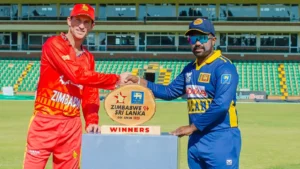
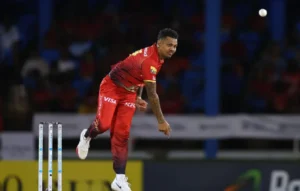
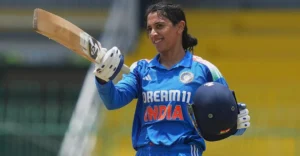

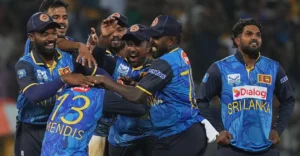


2 thoughts on “Road to U 19 cricket world cup”